Careers at the interface of science and law
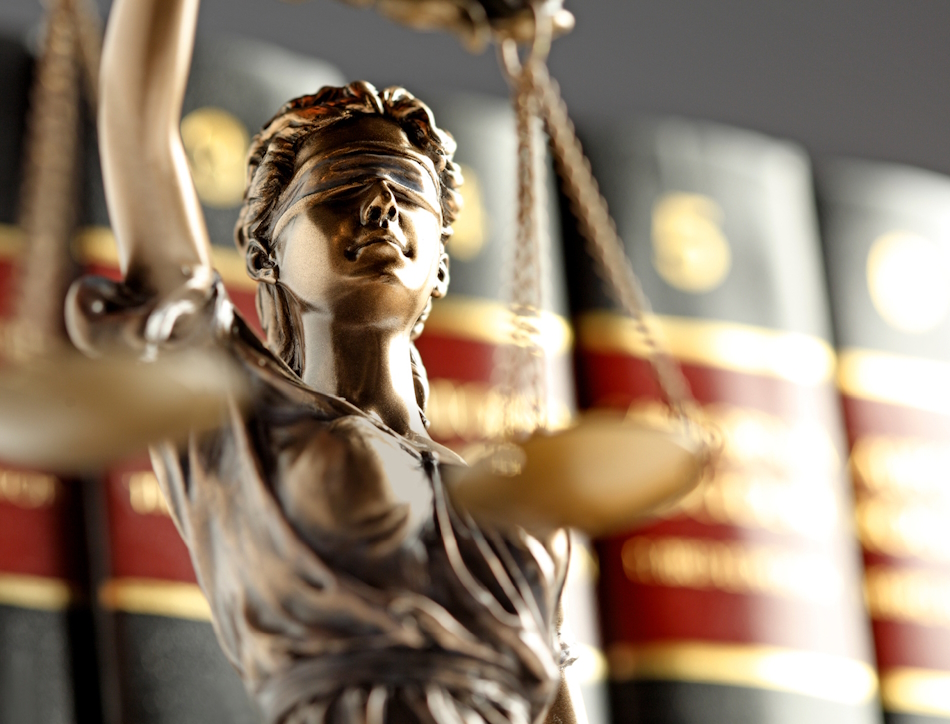
This event explored the career opportunities that exist within both science and law sectors.
This careers session was aimed at undergraduates and recent postgraduates, as well as sixth form students interested in a career in science or law.
The session featured talks from professionals working at the interface of science and the law, exploring the mobility between the two sectors and the pathway into their current careers, followed by a panel discussion and Q&A session.
This event was part of the Science and Law programmes at the National Academy of Science and the Royal Society. Find out more about the Royal Society's Science and the Law programme.
Event recording
Schedule
| 15:00-15:05 |
Welcome
Dr Julie Maxton DBEExecutive Director, the Royal Society Dr Julie Maxton DBEExecutive Director, the Royal Society Dr Julie Maxton DBE is the Executive Director of the Royal Society, the first woman in 350 years to hold the post. Before taking up her position at the Royal Society in 2011 Julie was Registrar at the University of Oxford, the first woman in 550 years in the role. She is an Honorary Fellow of University College Oxford, a Bencher of the Middle Temple, a Freeman of the Goldsmith’s Company and a Board member of Sense about Science. In the past she has also been on the Boards of the Alan Turing Institute, Blavatnik School of Government in Oxford, Haberdasher Aske’s School (Elstree), Engineering UK, Charities Aid Foundation and The Faraday Institute. Originally trained as a barrister at the Middle Temple, Julie combined a career as a practising lawyer with that of an academic, holding a number of senior academic positions, including those of Deputy Vice Chancellor, Professor and Dean of the Faculty of Law at the University of Auckland, New Zealand. Academic and other recognition Julie has received include a CBE (2017) and Honorary Degrees from the Universities of Huddersfield, Warwick, Canterbury, Hull and Bristol. She is the author of several books and numerous articles concerned with trusts, equity, commercial and property law. |
|---|
Chair
Dr Julie Maxton DBE
Executive Director, the Royal Society
Dr Julie Maxton DBE
Executive Director, the Royal Society
Dr Julie Maxton DBE is the Executive Director of the Royal Society, the first woman in 350 years to hold the post. Before taking up her position at the Royal Society in 2011 Julie was Registrar at the University of Oxford, the first woman in 550 years in the role.
She is an Honorary Fellow of University College Oxford, a Bencher of the Middle Temple, a Freeman of the Goldsmith’s Company and a Board member of Sense about Science. In the past she has also been on the Boards of the Alan Turing Institute, Blavatnik School of Government in Oxford, Haberdasher Aske’s School (Elstree), Engineering UK, Charities Aid Foundation and The Faraday Institute.
Originally trained as a barrister at the Middle Temple, Julie combined a career as a practising lawyer with that of an academic, holding a number of senior academic positions, including those of Deputy Vice Chancellor, Professor and Dean of the Faculty of Law at the University of Auckland, New Zealand. Academic and other recognition Julie has received include a CBE (2017) and Honorary Degrees from the Universities of Huddersfield, Warwick, Canterbury, Hull and Bristol.
She is the author of several books and numerous articles concerned with trusts, equity, commercial and property law.
| 15:05-15:15 |
A life of crime: a career in forensic science
As a forensic science practitioner, involved from crime scene to court, to an executive responsible for delivering a range of forensic science and medicine services to the judicial system, Anne’s career in operational forensic science spans 28 years. In her current role, Anne combines her extensive forensic science experience with skills developed through studying for a Master of Business Administration to ensure research outcomes align with operational requirements and to establish sustainability of the Leverhulme Research Centre for Forensic Science into the future. Anne will discuss her journey through a varied and highly satisfying career in forensic science along with some of the challenges and rewards it has presented. 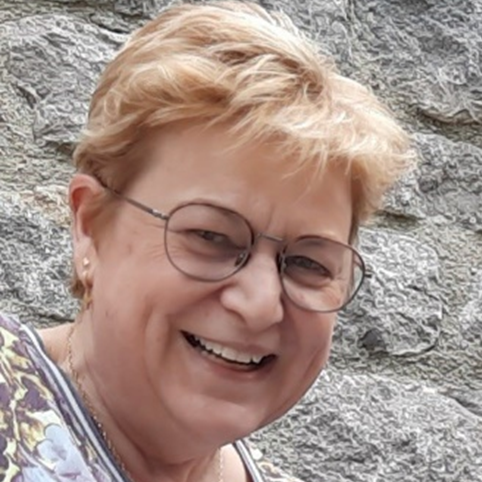
Professor Anne CoxonLeverhulme Research Centre for Forensic Science 
Professor Anne CoxonLeverhulme Research Centre for Forensic Science Anne Coxon is the Professor of Practice in Forensic Science and Deputy Director of the Leverhulme Research Centre for Forensic Science (LRCFS) at the University of Dundee. Before coming to LRCFS in April 2023, Anne spent eight years at Forensic Science SA (FSSA) in Adelaide, Australia where, latterly, she was the Assistant Director Operations responsible for the delivery of forensic science and pathology services to the State of South Australia. She has twenty years’ experience as a technical expert and science leader within the field of clandestine drug laboratories gained whilst working for the Institute of Environmental Science and Research Ltd (ESR) in New Zealand. Anne holds a PhD in Pure and Applied Chemistry from Strathclyde University in Glasgow and a Master of Business Administration (MBA) from the University of South Australia in Adelaide. |
|---|---|
| 15:15-15:25 |
Evidence-based policing – combining efficacy and ethics in methods to prevent sexual violence
Trigger warning: This talk mentions rape and serious sexual offences. The use of science within Law Enforcement is usually considered within the context of pursuit and prosecution. Forensics, pathology, and the analysis of technical data are all applications of the scientific method which occur after a crime has happened. However, the use of observation, hypotheses, experimentation, analysis, and evidence-gathering may also be applied to prevent criminal activity. James’s Rape and Serious Sexual Offence (RASSO) Problem Profile considered sexual violence in Avon and Somerset with a focus on preventative methods. Combining criminal theory and sociology with a peer-reviewed evidence base, James identified a series of tactics and opportunities to prevent sexual offences from happening. As well as the efficacy of these crime prevention methods, serious consideration was given to the ethical and social implications of the interventions suggested. In this talk, James considers his use of the scientific method within crime prevention using rape and serious sexual offence prevention as a case study. 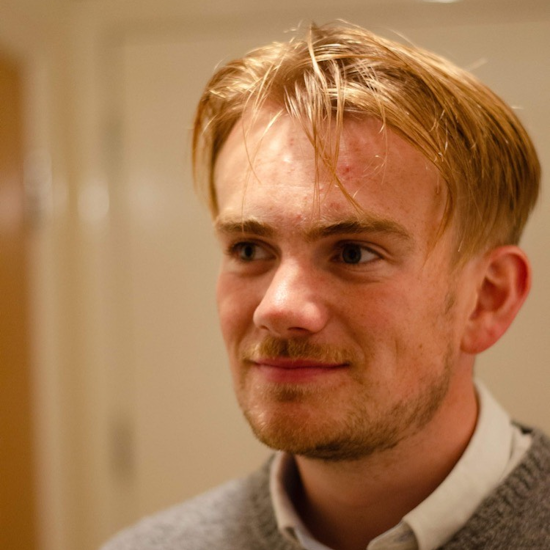
James BeazleyMetropolitan Police 
James BeazleyMetropolitan Police James Beazley is a criminal intelligence analyst working for the Metropolitan Police in London. He currently works within the Serious & Organised Crime Command. James has worked on a range of criminal thematises including serious violence, firearm supply, and drug importation. James’ specialism, however, is the detection, prevention, and prosecution of sex crimes. James wrote the Rape and Serious Sexual Offences (RASSO) Problem Profile for Avon and Somerset Police and, last year, he co-authored the Met’s Violence Against Women and Girls (VAWG) Problem Profile. James is a subject matter expert in sexual slavery and he runs workshops for constabularies around the UK in how to better tackle exploitative prostitution. James’ work within the Police includes liaising with prosecution and defence lawyers and presenting evidence in Crown Court. Before working for the Police, James studied for a BSc in Physics and Philosophy at Bristol University. |
| 15:25-15:35 |
Exploring the convergence of art and forensics: Journey from animation to forensics VR
The presentation comprehensively examines the intersection between art and forensic science, tracing Sang-hun (Sean) Yu's remarkable transition from a career in 3D animation and visualisation to ground-breaking 3D forensic reconstructions. Explore the evolution of technology, encompassing everything from animation to advanced 3D modelling, capture, and virtual reality, which have dramatically reshaped traditional disciplinary boundaries. The talk will delve into the current state of the art and show how this cutting-edge 3D visual technology is poised to shape the future of forensics. 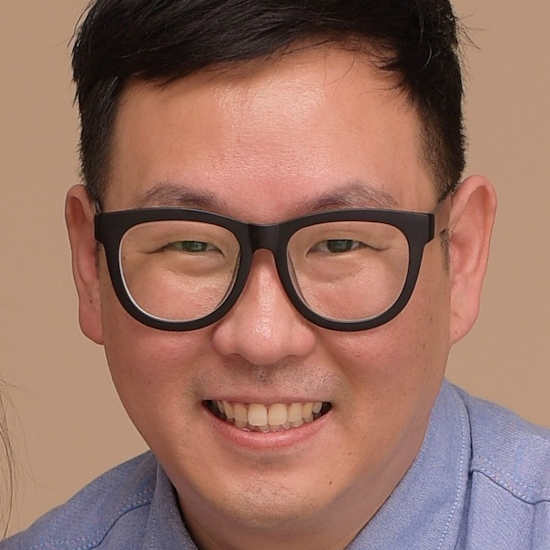
Sean YuDuncan of Jordanstone College of Art & Design 
Sean YuDuncan of Jordanstone College of Art & Design Sang-hun (Sean) Yu is a lecturer at Duncan of Jordanstone College of Art & Design while concurrently pursuing a PhD at the Leverhulme Research Centre for Forensic Science at the University of Dundee, Scotland. Before his academic career, he gained experience as an animator working on various animation projects and TV commercials, including his involvement in the Oscar-nominated animated feature film 'L'illusionniste' (The Illusionist), directed by Sylvain Chomet. Sean is actively engaged in a collaborative VR project between Duncan of Jordanstone College of Art & Design and the Leverhulme Research Centre in Forensics as part of his doctoral studies. One of his notable achievements includes the development of the Dundee Ground Truth Imaging Protocol, a systematic procedure for recording forensic scenes reconstructed in 3D rapidly and accurately. |
| 15:35-15:55 |
Panel discussion and Q&A

Professor Anne CoxonLeverhulme Research Centre for Forensic Science 
Professor Anne CoxonLeverhulme Research Centre for Forensic Science Anne Coxon is the Professor of Practice in Forensic Science and Deputy Director of the Leverhulme Research Centre for Forensic Science (LRCFS) at the University of Dundee. Before coming to LRCFS in April 2023, Anne spent eight years at Forensic Science SA (FSSA) in Adelaide, Australia where, latterly, she was the Assistant Director Operations responsible for the delivery of forensic science and pathology services to the State of South Australia. She has twenty years’ experience as a technical expert and science leader within the field of clandestine drug laboratories gained whilst working for the Institute of Environmental Science and Research Ltd (ESR) in New Zealand. Anne holds a PhD in Pure and Applied Chemistry from Strathclyde University in Glasgow and a Master of Business Administration (MBA) from the University of South Australia in Adelaide. 
James BeazleyMetropolitan Police 
James BeazleyMetropolitan Police James Beazley is a criminal intelligence analyst working for the Metropolitan Police in London. He currently works within the Serious & Organised Crime Command. James has worked on a range of criminal thematises including serious violence, firearm supply, and drug importation. James’ specialism, however, is the detection, prevention, and prosecution of sex crimes. James wrote the Rape and Serious Sexual Offences (RASSO) Problem Profile for Avon and Somerset Police and, last year, he co-authored the Met’s Violence Against Women and Girls (VAWG) Problem Profile. James is a subject matter expert in sexual slavery and he runs workshops for constabularies around the UK in how to better tackle exploitative prostitution. James’ work within the Police includes liaising with prosecution and defence lawyers and presenting evidence in Crown Court. Before working for the Police, James studied for a BSc in Physics and Philosophy at Bristol University. 
Sean YuDuncan of Jordanstone College of Art & Design 
Sean YuDuncan of Jordanstone College of Art & Design Sang-hun (Sean) Yu is a lecturer at Duncan of Jordanstone College of Art & Design while concurrently pursuing a PhD at the Leverhulme Research Centre for Forensic Science at the University of Dundee, Scotland. Before his academic career, he gained experience as an animator working on various animation projects and TV commercials, including his involvement in the Oscar-nominated animated feature film 'L'illusionniste' (The Illusionist), directed by Sylvain Chomet. Sean is actively engaged in a collaborative VR project between Duncan of Jordanstone College of Art & Design and the Leverhulme Research Centre in Forensics as part of his doctoral studies. One of his notable achievements includes the development of the Dundee Ground Truth Imaging Protocol, a systematic procedure for recording forensic scenes reconstructed in 3D rapidly and accurately. |
Chair
Dr Julie Maxton DBE
Executive Director, the Royal Society
Dr Julie Maxton DBE
Executive Director, the Royal Society
Dr Julie Maxton DBE is the Executive Director of the Royal Society, the first woman in 350 years to hold the post. Before taking up her position at the Royal Society in 2011 Julie was Registrar at the University of Oxford, the first woman in 550 years in the role.
She is an Honorary Fellow of University College Oxford, a Bencher of the Middle Temple, a Freeman of the Goldsmith’s Company and a Board member of Sense about Science. In the past she has also been on the Boards of the Alan Turing Institute, Blavatnik School of Government in Oxford, Haberdasher Aske’s School (Elstree), Engineering UK, Charities Aid Foundation and The Faraday Institute.
Originally trained as a barrister at the Middle Temple, Julie combined a career as a practising lawyer with that of an academic, holding a number of senior academic positions, including those of Deputy Vice Chancellor, Professor and Dean of the Faculty of Law at the University of Auckland, New Zealand. Academic and other recognition Julie has received include a CBE (2017) and Honorary Degrees from the Universities of Huddersfield, Warwick, Canterbury, Hull and Bristol.
She is the author of several books and numerous articles concerned with trusts, equity, commercial and property law.
| 16:10-16:20 |
Pipettes to patents
This talk will look at the journey from scientist to patent attorney and how patent law can be used to protect innovations as a mechanism to translate science from bench to the world. 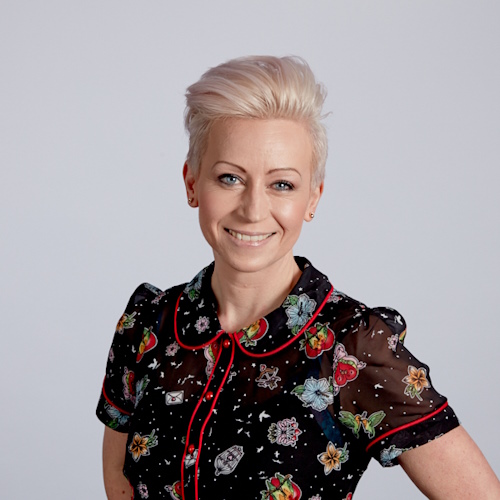
Dr Sara HollandPotter Clarkson LLP 
Dr Sara HollandPotter Clarkson LLP Sara supports early-stage scientist-founded companies that are engineering biology in the UK, Europe and elsewhere, to identify and protect their IP, and come up with a solid IP strategy. These companies operate across all sectors, including food, therapeutics, agritech, materials, chemicals and oil manufacture. Sara is proactive in the engineering biology community, being appointed to the UK Government’s DSIT Engineering Biology Steering Group, in addition to being the vice chair role of the Bioindustry Associations’ Engineering Biology Advisory Committee (EBAC), co-founding the Women in Synthetic Biology and east midlands based BioAmass networks, and mentoring on a number of different programmes. |
|---|---|
| 16:20-16:30 |
Using law to protect the environment
This talk will cover what being an environmental law barrister involves, with case examples demonstrating that a solid grounding in a scientific or technical discipline can be very useful for a career at the Bar. 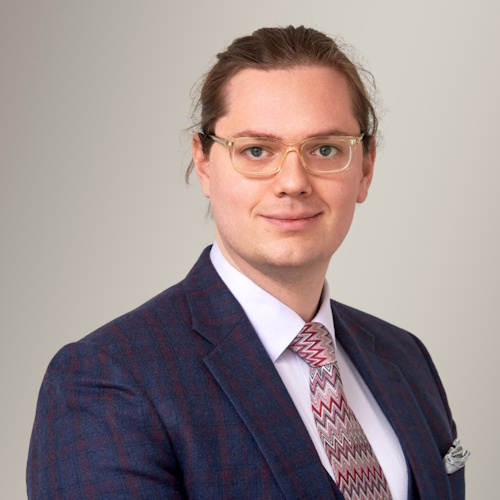
Dr Alex ShattockLandmark Chambers 
Dr Alex ShattockLandmark Chambers Alex is a barrister at Landmark Chambers specialising in environmental, public and planning law. He has acted for many of the major environmental NGOs in the UK. His work includes technical and scientific matters such as fossil fuel extraction, carbon emissions, sewage and agricultural pollution, genetically modified organisms, and pesticide licensing. Alex maintains an active interest in AI as a legal training and research tool and is a member of Landmark’s AI working group. He has a PhD in public international law. |
| 16:30-16:40 |
Regulatory affairs - where law meets science
Kate will give a brief overview of the breadth of legal instruments governing the Pharmaceutical Industry, give examples of when the established meaning of the law was successfully challenged and what to learn from this to aid timely and relevant legislative interpretation to support emerging and new scientific fields in pharmaceutical medicines. 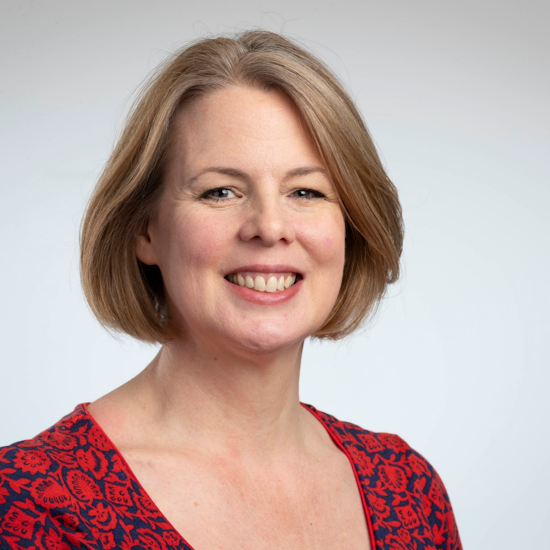
Kate BeaujeuxAstraZeneca 
Kate BeaujeuxAstraZeneca Kate Beaujeux has over 30 years of experience in the area of pharmaceutical development. She is a chemist by training and has been working in Regulatory Affairs for over 25 years. Kate studied for a post graduate qualification in Regulatory Affairs and delved in to the, then new, Pharmaceutical legislation in the EU as part of her dissertation. Kate’s “Regulatory Radar” is focused on spotting where there is ambiguity in legal framework or where one interpretation is taken as the only meaning of the law when it is actually less restrictive than it has been implemented. Kate spends time with Pharmaceutical legal experts to ensure that the position is correctly worded and she enjoys this partnership between science, established process and the legal position. |
| 16:40-17:00 |
Panel discussion and Q&A

Dr Sara HollandPotter Clarkson LLP 
Dr Sara HollandPotter Clarkson LLP Sara supports early-stage scientist-founded companies that are engineering biology in the UK, Europe and elsewhere, to identify and protect their IP, and come up with a solid IP strategy. These companies operate across all sectors, including food, therapeutics, agritech, materials, chemicals and oil manufacture. Sara is proactive in the engineering biology community, being appointed to the UK Government’s DSIT Engineering Biology Steering Group, in addition to being the vice chair role of the Bioindustry Associations’ Engineering Biology Advisory Committee (EBAC), co-founding the Women in Synthetic Biology and east midlands based BioAmass networks, and mentoring on a number of different programmes. 
Dr Alex ShattockLandmark Chambers 
Dr Alex ShattockLandmark Chambers Alex is a barrister at Landmark Chambers specialising in environmental, public and planning law. He has acted for many of the major environmental NGOs in the UK. His work includes technical and scientific matters such as fossil fuel extraction, carbon emissions, sewage and agricultural pollution, genetically modified organisms, and pesticide licensing. Alex maintains an active interest in AI as a legal training and research tool and is a member of Landmark’s AI working group. He has a PhD in public international law. 
Kate BeaujeuxAstraZeneca 
Kate BeaujeuxAstraZeneca Kate Beaujeux has over 30 years of experience in the area of pharmaceutical development. She is a chemist by training and has been working in Regulatory Affairs for over 25 years. Kate studied for a post graduate qualification in Regulatory Affairs and delved in to the, then new, Pharmaceutical legislation in the EU as part of her dissertation. Kate’s “Regulatory Radar” is focused on spotting where there is ambiguity in legal framework or where one interpretation is taken as the only meaning of the law when it is actually less restrictive than it has been implemented. Kate spends time with Pharmaceutical legal experts to ensure that the position is correctly worded and she enjoys this partnership between science, established process and the legal position. |
| 16:55-17:00 |
Closing remarks
Dr Julie Maxton DBEExecutive Director, the Royal Society Dr Julie Maxton DBEExecutive Director, the Royal Society Dr Julie Maxton DBE is the Executive Director of the Royal Society, the first woman in 350 years to hold the post. Before taking up her position at the Royal Society in 2011 Julie was Registrar at the University of Oxford, the first woman in 550 years in the role. She is an Honorary Fellow of University College Oxford, a Bencher of the Middle Temple, a Freeman of the Goldsmith’s Company and a Board member of Sense about Science. In the past she has also been on the Boards of the Alan Turing Institute, Blavatnik School of Government in Oxford, Haberdasher Aske’s School (Elstree), Engineering UK, Charities Aid Foundation and The Faraday Institute. Originally trained as a barrister at the Middle Temple, Julie combined a career as a practising lawyer with that of an academic, holding a number of senior academic positions, including those of Deputy Vice Chancellor, Professor and Dean of the Faculty of Law at the University of Auckland, New Zealand. Academic and other recognition Julie has received include a CBE (2017) and Honorary Degrees from the Universities of Huddersfield, Warwick, Canterbury, Hull and Bristol. She is the author of several books and numerous articles concerned with trusts, equity, commercial and property law. |
|---|
